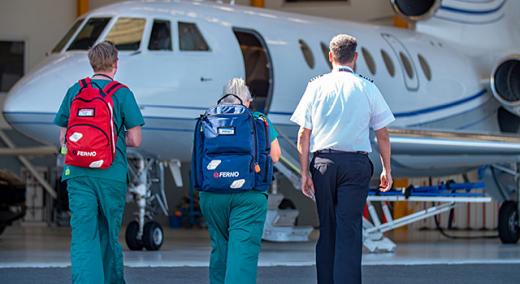MEDEVAC
The Covid-19 pandemic has crippled the airline industry. Passenger numbers are down more than two-thirds from last year, and airlines have been canceling flights and shutting down routes.
|
ADVERTISEMENT |
It’s frustrating for travelers, but for patients on organ transplant waiting lists, the loss of flights can put a life-saving kidney or heart out of reach.
Our research shows just how valuable each flight route can be for connecting donor organs with people in need of transplants. It also suggests that the industry’s great rebooting in the coming years can be an opportunity to help make the U.S. organ transplantation system more equitable.
…

Add new comment